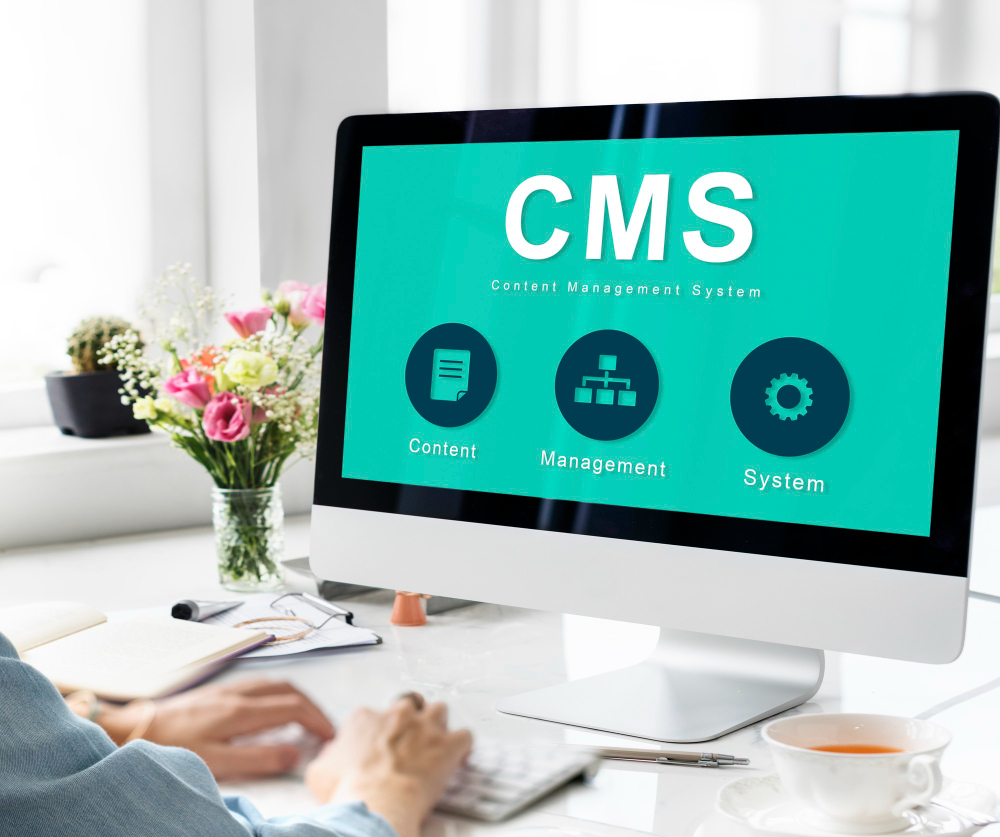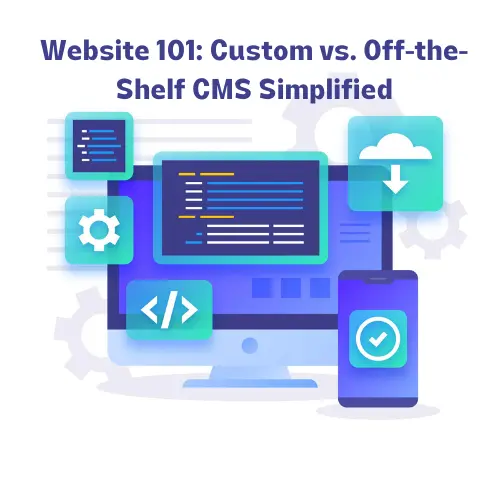Introduction
In website development, managing content effectively is crucial for success. Two primary options stand out for this task: custom CMS and off-the-shelf CMS. Each approach offers distinct advantages and disadvantages, rendering the choice between them dependent on specific needs and budget constraints. Let’s look into the complexities of each option to determine the most suitable solution for your website.
Custom CMS

Custom CMS is carefully designed from the ground up to meet the specific needs of a particular website. This unique approach provides complete control over every aspect of the CMS, including its design, functionality, and integration with the website’s overall aesthetic. While custom CMSs often incur higher development and maintenance costs, they are particularly well-suited for websites with highly specific needs or those seeking smooth integration with the site’s design.
Off-the-Shelf CMS

An off-the-shelf CMS, as the name suggests, comes pre-built and ready to install on your website. These readily available solutions, such as WordPress, Drupal, and Joomla, offers ease of use and a vast community of users and resources. Their affordability makes them a compelling choice for budget-conscious individuals or those seeking a user-friendly CMS with extensive support.
Comparing the Two Approaches
To effectively evaluate custom and off-the-shelf CMSs, consider the following table:
| Feature | Custom CMS | Off-the-Shelf CMS |
| Cost | Typically more expensive due to custom development and maintenance | Less expensive due to pre-built nature |
| Control | Complete control over design, functionality, and integration | Less control over design and functionality; may require plugins or extensions for specific needs |
| Scalability | Highly scalable to accommodate growth and evolving requirements | Less scalable, requiring potential upgrades or migrations as website demands increase |
| User-friendliness | Requires technical knowledge for installation and maintenance | Easy to use, with minimal technical expertise required |
| Community | Smaller community, but with specialized expertise in custom CMS development | Large community offering extensive support, resources, and tutorials |
| Updates | Requires manual updates to ensure security and compatibility | Regular automatic updates provided by CMS developers |
Examples of Custom CMS Usage
Numerous prominent websites leverage the power of custom CMSs to deliver exceptional user experiences:
Netflix: The world’s leading streaming service relies on a custom CMS to seamlessly manage its vast content library and deliver personalized recommendations.
Airbnb: The global hospitality platform utilizes a custom CMS to power its user-friendly interface and facilitate seamless interactions between travelers and hosts.
Spotify: The music streaming giant employs a custom CMS to provide a personalized music experience and manage its extensive catalog of songs and podcasts.
Examples of Off-the-Shelf CMS Usage
Off-the-shelf CMSs find widespread use among renowned websites:
Tesla: The electric vehicle pioneer utilizes WordPress to manage its blog, showcasing the latest advancements in automotive technology.
The New York Times: The esteemed news organization employs Drupal to power its website, providing timely and in-depth coverage of global events.
The White House: The official website of the United States government uses WordPress to communicate with citizens and inform the public about government initiatives.
A recent survey revealed that 58% of businesses opt for off-the-shelf CMSs, while 42% choose custom CMSs. WordPress reigns supreme among off-the-shelf CMSs, holding a market share of 64%, while Drupal leads the custom CMS landscape with a 13% market share.
Conclusion
The decision between custom and off-the-shelf CMS depends on the specific needs and budget constraints of the website. Custom CMSs offer unparalleled control and scalability, catering to highly specialized requirements and intricate design integration. Off-the-shelf CMSs, on the other hand, provide ease of use, extensive support, and regular updates, making them ideal for budget-friendly projects with moderate demands. Carefully assess your website’s specific needs and resources to determine the CMS solution that empowers your online presence and drives success.



